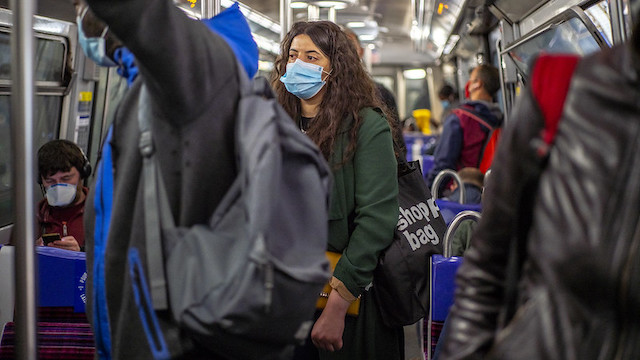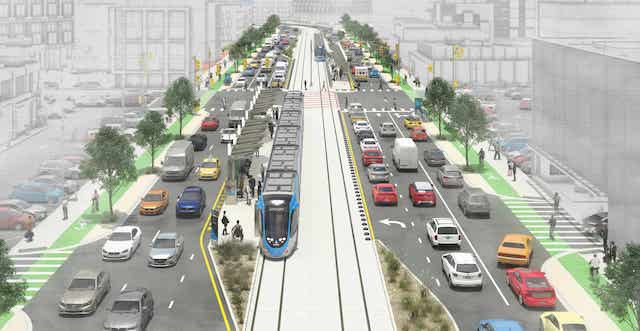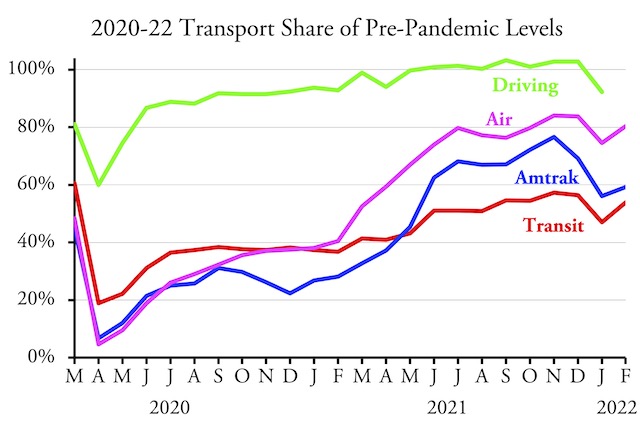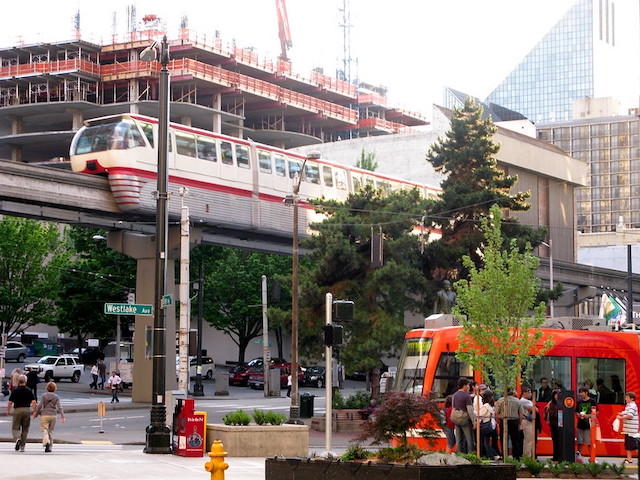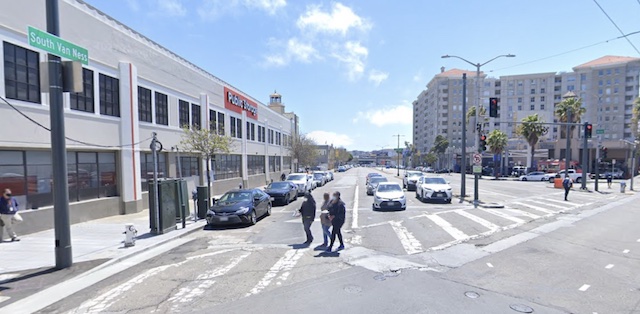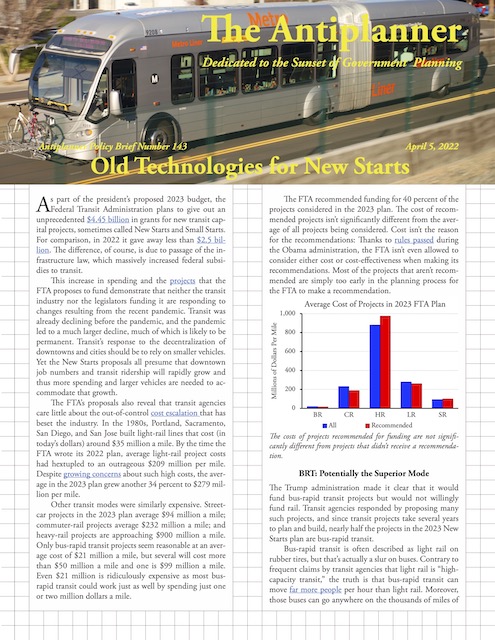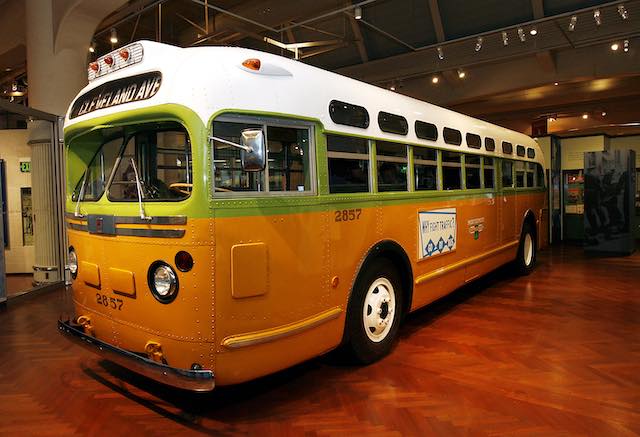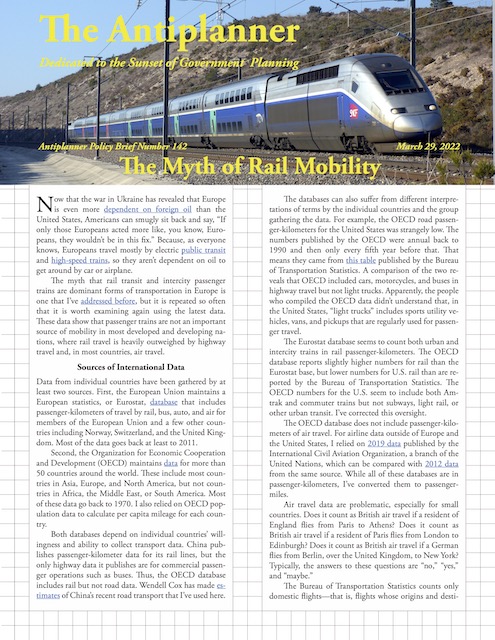A comparison of transit usage and COVID cases early in the pandemic in 52 urban areas found that heavy transit use was strongly correlated with greater numbers of COVID infections. “Increasing weekly bus transit usage in metropolitan statistical areas by one scaled unit was associated with a 1.38 times increase in incidence rate of COVID-19; a one scaled unit increase in weekly train transit usage was associated with an increase in incidence rate of 1.54,” said the researchers.
Plan to wear a mask for the rest of your life. Photo by Jacques Paquier.
The correlation was strong even if New York City was eliminated from the dataset. As I’ve often noted, New York is such a big transit market that it often biases any analysis of transportation across American cities. Continue reading

